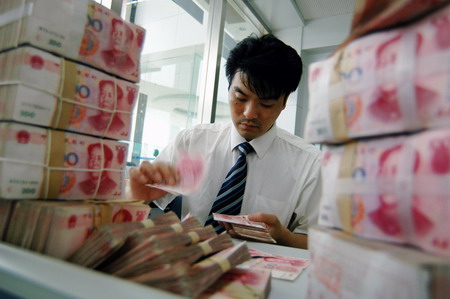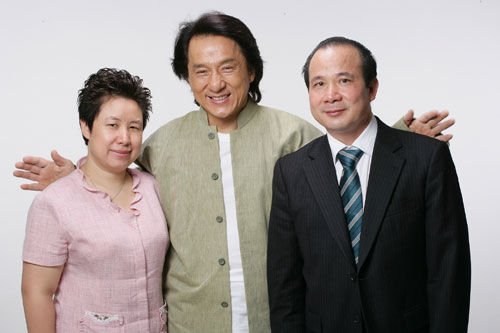BizChina
- Details
- By Forbes.com
- Hits: 1169
In a common Chinese bargaining tactic staged daily at markets and shopping malls, buyers usually pretend they are walking away if sellers refuse to offer a better price. The same strategy is now being used by Chinese steel mills to negotiate with tough Australian iron ore miners.
Chinese steel mills, at an impasse over ore prices with Australian suppliers, plan to turn to Brazilian suppliers instead for the iron ore imports that feed economic growth in China, China Daily reported Wednesday, quoting a shipping research house and a port operator.
According to shipping data provider AXSMarine, spot iron ore vessel bookings from Brazil to China surged to a record 39 in July after the Chinese government detained four Rio Tinto ( RTP - news - people ) employees, up from 24 bookings in the previous month. By contrast, vessel bookings from Australia's main iron ore ports to China dropped to 31 in July, the lowest level since February, and down from the 40 bookings in June.
- Details
- By Forbes.com
- Hits: 1057
There is no shortage of villains to blame for the global financial crisis.
One is the phenomenon of global macroeconomic imbalances--current account deficits in the U.S. and other advanced economies, matched by surpluses in many emerging market and oil-exporting economies. Even if they were not the key factor, global imbalances served as tinder for the financial crisis by providing cheap money that facilitated a consumption binge in the U.S. and encouraged financial shenanigans.
Remarkably, economies around the world are still looking to ride the U.S. coattails to a recovery. Emerging markets like China and advanced economies like Germany and Japan seem to be counting on the U.S. market to absorb more of their exports. This is clearly not in the cards if U.S. consumers remain reluctant to return to their spendthrift ways. And surely we do not want a resurgence of global imbalances.
So how then to rebalance the world economy? A key component of the overall global rebalancing effort is to fix growth imbalances in Asian emerging markets. This will not only help stabilize the world financial and economic systems but would also be in the direct interests of those countries to shake themselves free from export-led growth.
Read more: Rebalancing growth in Asia depends on Chinese consumer spending
- Details
- By Forbes.com
- Hits: 1125
The booming Chinese economy won't have to sweat much to meet its official target of 8% growth this year, and might surpass it.
A report published by brokerage CLSA on Monday showed that China's purchasing managers' index (PMI) hit a twelve-month high in July. Eric Fishwick, head of economic research for CLSA, said, "manufacturing activity continues to accelerate and, importantly, orders growth is being driven by the domestic economy. This is a positive as Chinese exports are now underperforming those of the north Asian NIEs supporting the panel's description of export demand as "lacklustre." Output and input prices rose for the first time in 11 months. CLSA Asia-Pacific Markets is Asia's leading independent brokerage and investment group.
More new production orders from local and overseas buyers helped China's manufacturing sector expand for the fifth straight month in July, according to the official survey released Saturday. China's purchasing managers' index increased to 53.3 in July, up from 53.2 in June, the China Federation of Logistics and Purchasing announced Saturday. The survey, conducted on the behalf of the National Bureau of Statistics, covers purchasing and supply managers in more than 700 firms across China.
Read more: Expansion in the manufacturing sector underpins China's growth target
- Details
- By David Cao
- Hits: 1589

With prospects of further interest rate cuts on the anvil, investors seem to be shunning bonds in favor of equities and commodities, according to experts.
Adding more credibility to the view has been the nearly 70-percent rise in the A-share market since the beginning of the year and the anticipation of an ensuing inflation activated commodities trading.
- Details
- By Forbes.com
- Hits: 1594

Former pesticide salesman Chen Qiyuan, 47, and wife, 43, joined China’s new rich on Friday with a net worth of $885 million after they listed their shampoo company, BaWang, and sold part of it to investors in Hong Kong’s most popular public offering this year.
Oversubscribed 446 times, BaWang set its listing price at the top of its indicative range, tapping a total of 1.7 billion Hong Kong dollars ($214 million) for the share floatation. Chen and his spouse still own three quarters of the cosmetics company. On its first day of trading BaWang, which was the most searched item on search engine Yahoo in Hong Kong that day, soared 32.4% to as high as 3.15 Hong Kong dollars (40 cents) before closing 27% higher at 3.03 Hong Kong dollars (39 cents). The herbal shampoo maker, bubbled another 7.3% to 3.25 Hong Kong dollars (42cents) on Monday.
More Articles …
Page 112 of 120